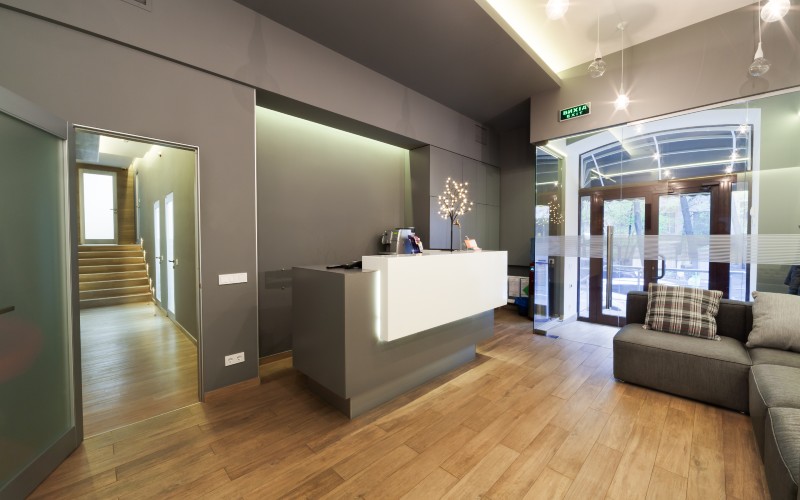
Dental surgeries come in all shapes and sizes, from street level premises and practices on the upper floors of a tenement, to stand alone, purpose built surgeries. Each has their own pros and cons, and will appeal to different practice owners.
Many principals will own their premises, which has the advantage of giving you a greater degree of freedom in terms of how you use the building, and of course you will own an asset which you can realise when you decide to sell your practice.
However, many will instead lease from a third party landlord. This may be because they don’t see property as a good investment and so don’t wish to send money on bricks and mortar, or it may be that premises simply isn’t available for purchase. Whatever the reason, being a tenant brings its own issues. It isn’t just a case of signing a lease and away you go, they are a number of details within a lease which need to be considered and which really need to be addressed at the outset.
Extent of the Premises
Rather obviously, you need to be clear on exactly what you are leasing. That might seem a ridiculous point, and in many cases it will be, but just make sure that you understand what the building consists of. This is particularly the case in a surgery within a larger building such as a tenement. Your solicitor should check what the lease covers, and also that you have all necessary rights of access over other parts of the larger building.
Rent
One of the first things you will agree is what the rent will be. That is fairly simple, but beyond that there are a number of points to consider.
Firstly, in certain circumstances a landlord requires to charge VAT on the rent. This is most likely if they, or an owner in the past, has carried out substantial refurbishment to the building. If they have, they may have “opted to tax”, which in practical terms means VAT being payable on the rent. If you are eligible for NHS rent reimbursement, you should be able to recover some or all of the VAT, but otherwise the VAT will simply be an extra expense so take care to confirm the position.
You will also want to confirm how regularly the rent will be reviewed (ie changed) and on what basis a rent review will be carried out. Your solicitor will be able to keep you right on the normal terms for a rent review and which are most advantageous from a tenant’s perspective.
Repair and Maintenance
One of the most common questions which we are asked when we act for either a landlord or a tenant is who is responsible for repairs to the building, and to what extent. That is a very valid and important question, as repairs can involve significant expense.
In many cases the tenant is fully responsible for all maintenance and repair, and also for insuring (or meeting the cost of insuring) the building. This is what is known as a Full Repairing and Insuring lease (or an FRI lease).
A tenant should, if asked to take an FRI lease, consider whether that is reasonable, and in particular what sort of condition the building is in when they take on the lease. If you are taking on a newly built or refurbished premises, an FRI lease might be perfectly reasonable, as the building should be in very good condition. However, in most cases the building won’t be new, and in such cases we would always recommend that a survey be carried out to ascertain its state of repair.
If there are any pre-existing issues with the building, you can seek to exclude certain parts of the building from your repair obligations as tenant. For example, if the roof is in a poor state, that can be left in the hands of the landlord.
Alternatively, and perhaps more commonly, you can ask the landlord to agree that you will have a Schedule of Condition prepared and built into the lease. Essentially, a Schedule of Condition is a photographic record of the state of the building just before you lease it. It records any existing defects, and sets a bar for the tenant’s repairing obligations. Any existing issues recorded in the Schedule are not the responsibility of the tenant, whereas any new issues which develop at a later date are.
Whatever the repairing obligations are, tenants should also be mindful that if they ever give up a lease (for example if you decide to move the surgery to new premises) they may be required to bring the premises up to scratch through a dilapidations notice. That can involve a reasonable amount of expense if you haven’t previously complied with your repairing obligations in the lease.
Forearmed is Forewarned
Getting advice on a lease at the outset is definitely sensible. If you can seek both legal and surveyor’s advice on your premises and the terms of your lease, it should minimise the risk of any nasty shocks as time goes by.
